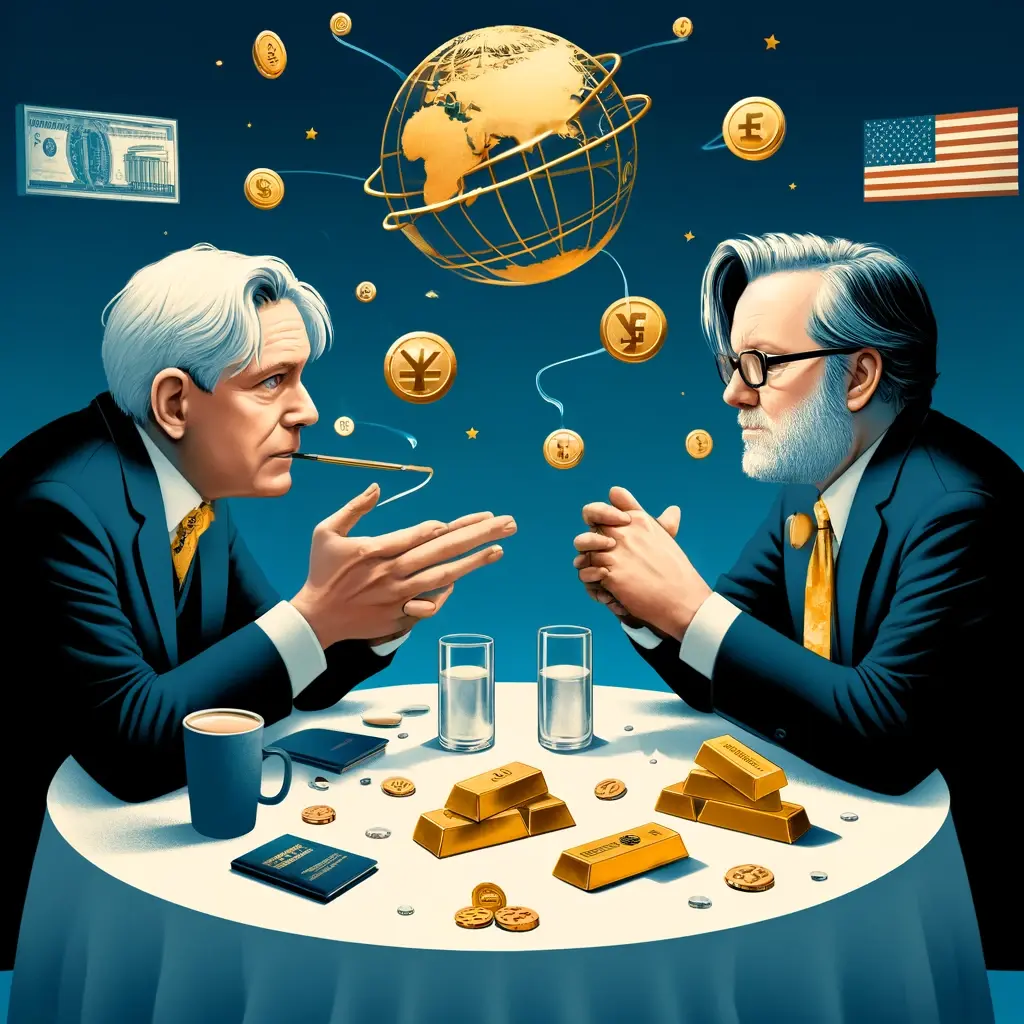In a recent episode of War Room, I engaged in a compelling conversation with Jim Rickards, a renowned author and financial expert, on topics ranging from currency wars to the ideological shifts in American universities. Our discussion spanned the intricacies of global financial strategies and the deep-rooted transformations in academic institutions influenced by neo-Marxist ideologies.
- Currency Wars and Trump’s Economic Policies: Jim Rickards elucidates the concept of currency wars, their historical context, and how Trump’s policies aim to stabilize rather than destabilize global currencies.
- Ideological Shifts in Academia: Rickards discusses the infiltration of neo-Marxist ideologies into American universities, leading to a decline in academic standards and brand value.
- Strategic Resource Accumulation by China: The conversation highlights China’s strategic accumulation of gold and oil as a hedge against economic sanctions and as part of their broader economic strategy.
Ideological Shifts in Academia
Jim began the conversation by addressing the current ideological landscape in American universities. He highlighted how the long march through the institutions, a concept proposed by Antonio Gramsci, has been successful in embedding neo-Marxist ideologies within academia.
- “They’ve destroyed their brand. They’ve destroyed their credibility. People are walking away. Benefactors are drying up.”
Jim pointed out that this ideological shift has led to a decline in academic standards and a dilution of prestigious university brands. Benefactors and prospective students are increasingly skeptical of investing in institutions that prioritize ideological indoctrination over quality education.
Trump’s Economic Strategy and Currency Wars
Our conversation then shifted to economic matters, with a focus on Trump’s economic strategy and the concept of currency wars. Jim explained that currency wars involve countries devaluing their currencies to boost exports and economic growth, often leading to a race to the bottom.
- “What Trump is doing is actually brilliant. Trump’s not trying to start a currency war; he’s trying to end a currency war.”
Jim also elaborated on how Trump’s approach, modeled after the successful Reagan-era Plaza Accord, aims to achieve currency stability through cooperation with major economies. This strategy contrasts with the media’s portrayal of Trump’s policies as reckless and destabilizing.
China’s Strategic Accumulation of Resources
In response to questions about China’s economic strategies, Jim discussed China’s significant accumulation of gold and oil reserves. He emphasized that China’s strategic resource stockpiling is a hedge against economic sanctions and a move to bolster their economic security.
- “China has a strategic petroleum reserve… and they’re very actively filling it up.”
Jim explained that China’s actions are part of a broader strategy to insulate their economy from potential geopolitical disruptions and to ensure long-term economic stability.
The conversation provided deep insights into the current ideological and economic challenges facing the United States. Rickards’ expertise shed light on the complexities of currency wars, the impact of ideological shifts in academia, and the strategic maneuvers of global powers like China. For those interested in understanding these intricate issues, Rickards’ analysis is a masterclass.
Recommended Reading
For a more comprehensive understanding of the topics discussed, Jim Rickards’ book “Currency Wars” is highly recommended. It provides an in-depth analysis of the history and impact of currency wars on global economies.
Please go to https://warroom.org/ and join Steve in the fight to save America.
Regards,
Steven K Bannon
https://warroom.org/




